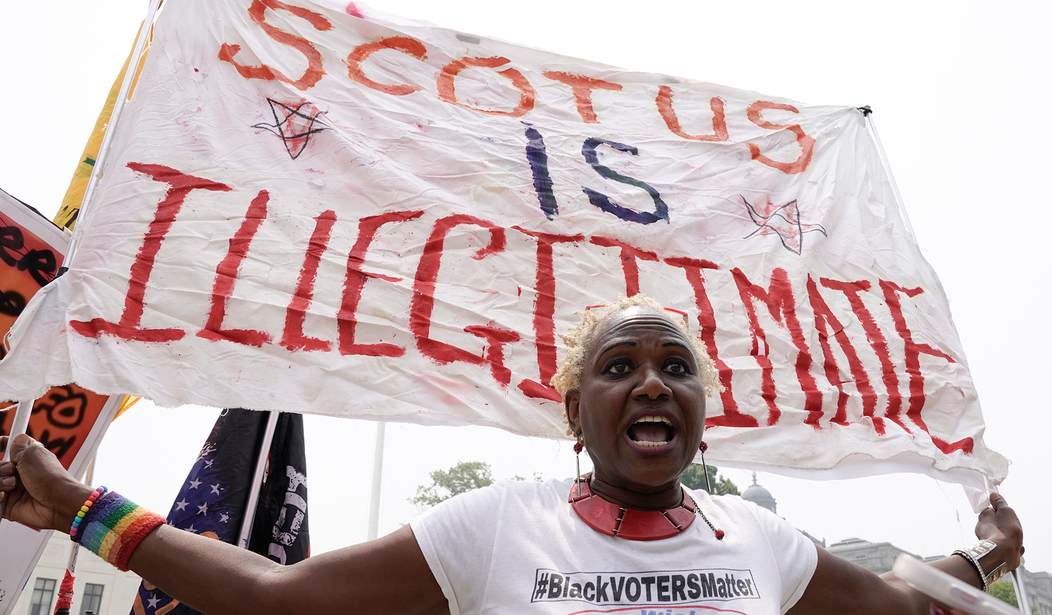"This is not a normal court." So said President Joe Biden last week as the Supreme Court was handing down its rulings in big cases decided since its current term began last October.
He's right in a trivial sense. The Supreme Court hears appeals, not trials as most courts do; its nine members can serve for life; it sets its own docket. But he's wrong if he means that this particular nine-member Supreme Court is a radical departure from accepted norms.
This term, the court overturned previous decisions much less often than courts from the 1950s to the 1980s. The three Democratic-appointed justices have been the least likely to have been in the minority, and their colleagues most often in the minority were Republican-appointed Justices Clarence Thomas and Samuel Alito.
Like the court altered by eight appointments by Franklin Roosevelt between 1937 and 1941, this court altered by three appointments by Donald Trump between 2017 and 2020 has not produced a dependable, one-sided partisan majority but has often been split on new lines.
That's not to say that this court has not decided some cases differently from how its predecessors would have. Such are the three headline cases decided last week by 6-3 majorities: Students for Fair Admissions v. University of North Carolina, 303 Creative v. Elenis and Biden v. Nebraska.
Each of these cases overturned as unconstitutional a policy backed by liberals, and each has been denounced by liberal commentators. Those denunciations, in my view, have been unconvincing, and the majority opinions of Chief Justice John Roberts and Justice Neil Gorsuch and a concurring opinion of Justice Clarence Thomas make powerfully the arguments for their results.
Recommended
The racially discriminatory admissions policies of UNC and Harvard College clearly violate the 14th Amendment and the Civil Rights Act of 1964; the Colorado state government's insistence on forcing creative entrepreneurs to utter words they consider sinful clearly violates the First Amendment freedom of speech; and the president's unauthorized diversion of $400 billion to student loan recipients is clearly in tension with the Constitution's vesting of "all legislative powers" in Congress.
There is something else in common here, something that goes beyond the issues on which legal commentators have rightly concentrated. And that is that in all three cases the liberal policy and its justifications have been based on lies.
That's most obvious in the college admissions cases. Harvard (which lost 6-2, with Justice Ketanji Brown Jackson, a former Harvard overseer, not voting) and UNC swore up and down they didn't discriminate. But statistics -- the same small percentage of high-scoring Asians admitted year after year -- and admissions officers' memos, unearthed by the plaintiffs, showed otherwise.
The irony is that leaders of American universities, supposedly dedicated to truth and scholarship, have been systematically lying about their "diversity, equity, and inclusion" practices for years. It has taken the Supreme Court years to recognize and hold up to condemnation this intellectual rot.
The most prominent lies about 303 Creative have been circulated after the decision came down. The charge is that there was no real case or controversy, even though, as Justice Gorsuch explained, the Colorado state agency stipulated it would bring charges against the plaintiff if she refused to create messages celebrating same-sex marriage.
The other lie, repeated in newspaper headlines, is that the plaintiff refused to do business with gay customers. In fact, she said she was willing to do so, with the limited exception of uttering creative custom messages against her deeply held principles. A contrary ruling would require Democratic campaign consultants to make ads for Donald Trump.
As for Joe Biden's case for unilateral executive branch forgiveness of $400 billion in student loans, the best testimony that it is based on lies comes from Speaker Emerita Nancy Pelosi (D-CA) in July 2021, when she said publicly that the president could not constitutionally issue such an order. Biden himself told a CNN town hall in February 2021 that he doubted he had that authority.
Biden evidently hoped that the flimsy arguments he ordered his Justice Department to concoct would prevail in the absence of any plaintiff who could claim damages from the order. But a Missouri agency could.
That leaves Biden with the cynical political argument, buttressed by newspapers' misleading headlines, that the Supreme Court took money away from student borrowers. Cynical arguments and outright lies can sometimes win votes, as some have for Donald Trump.
But the purveyors of lies may also pay a price. The principles behind Students for Fair Admissions v. Harvard threaten DEI practices of major corporations. The principle upholding freedom from forced speech threatens "diversity" oaths required of academics. The reassertion of Congress' constitutional monopoly of legislative powers threatens the delegation of powers to administrative agencies.
Those who base their arguments on lies can build grand edifices, but they may find they're based on foundations of sand.

























Join the conversation as a VIP Member